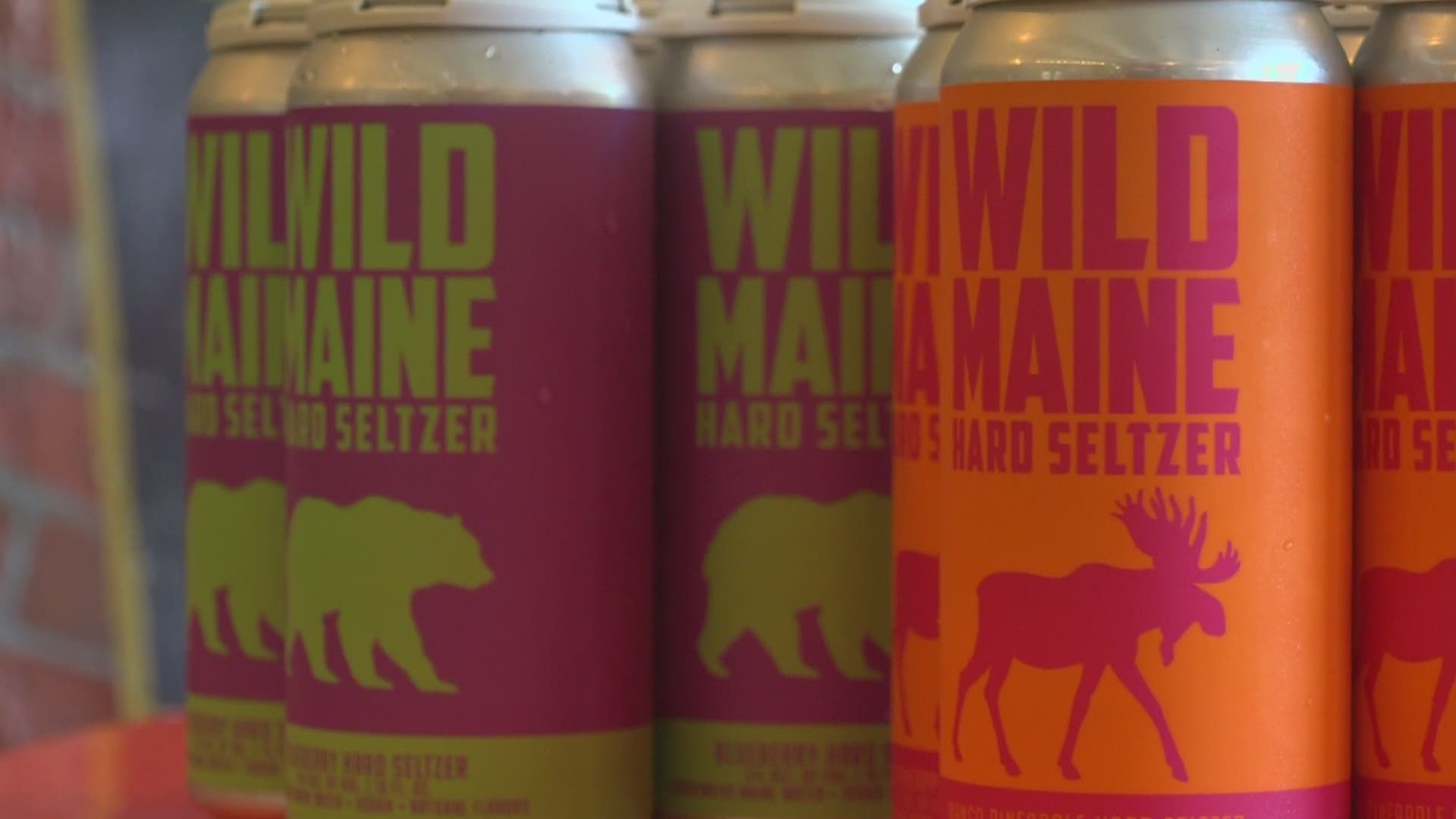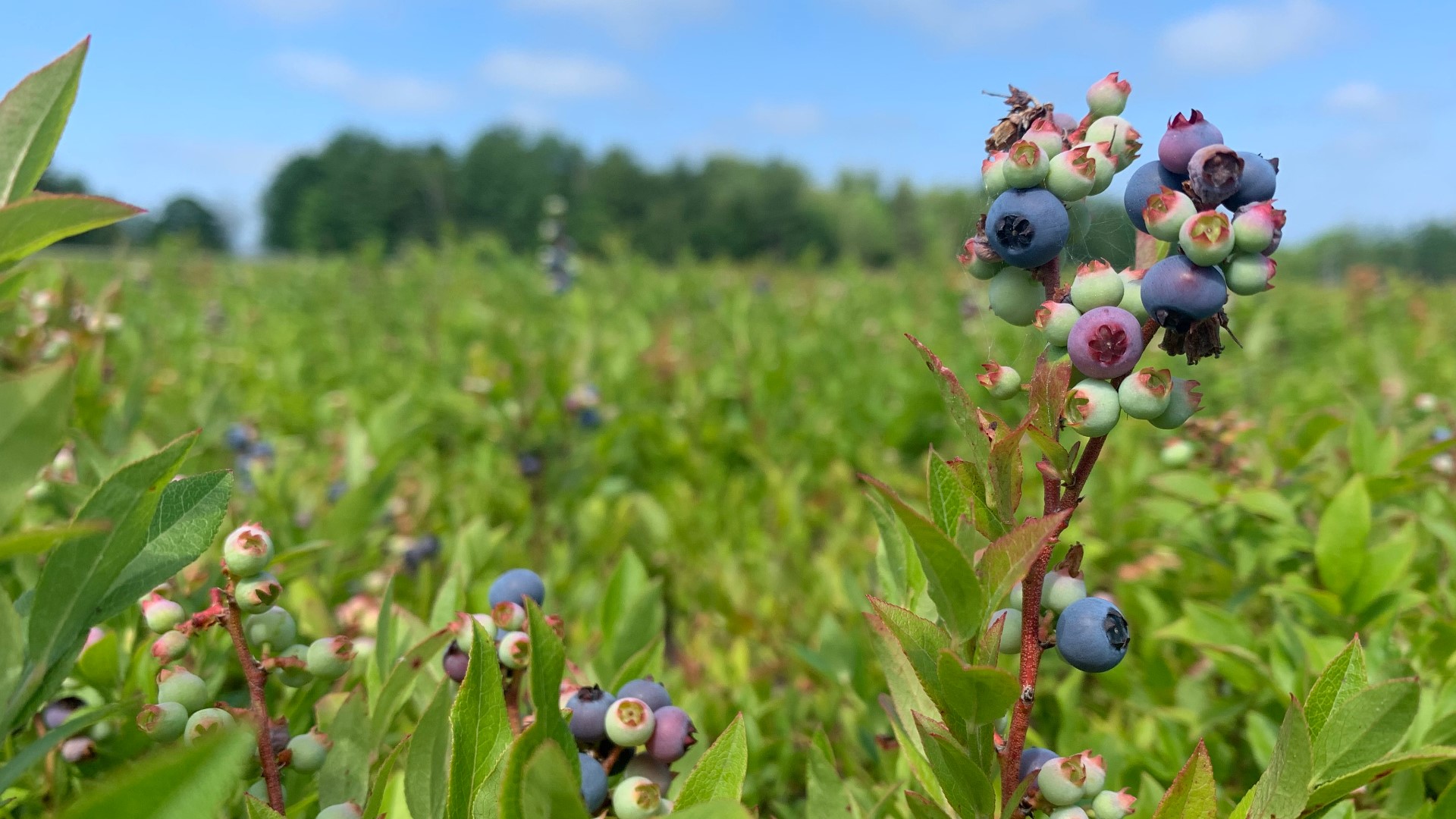MAINE, USA — One of the most important fruit fields in Maine is experiencing warming at a faster rate than usual, according to the Associated Press.
A recent study conducted by scientists at the University of Maine analyzed 40 years of data and found greater warming in the wild blueberry fields of Down East Maine than in the state at large. They said the warming of the blueberry fields could imperil the berries and the farmers who tend to them because the rising temperatures have brought loss of water.
The warming could put the blueberry at risk of water deficits, said the study’s lead author, Rafa Tasnim, a doctoral candidate in ecology and environmental science at UMaine. During a recent interview with the AP, Tasnim said: “What we are expecting is the temperature is going to increase a lot and we will not get as much rainfall in the summertime especially.” As a result, the scientist said, lack of water could result in smaller crop sizes and blueberries that are less likely to survive to be harvested. The Scientist said that farmers may have to get combat climate change by creative in the way they farm the popular Maine fruit.
"The wild blueberry industry in Maine has struggled somewhat in recent years due to factors such as last year’s drought and volatile markets. Farmers produced 47.4 million pounds of Maine wild blueberries last year, and that was the lowest number since 2004., according to the AP”
Maine is home to the only commercial producers of wild blueberries in the U.S. The little berries are smaller and have a slightly different flavor than their cultivated cousins, and most of the crop is used to supply frozen fruit.


